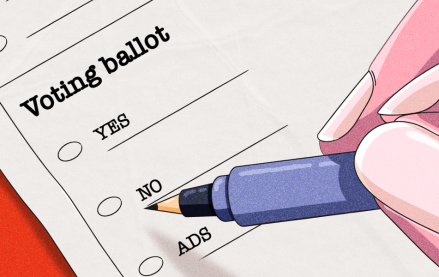
Story 1: A sports blog breaks an incredible story about a star college football linebacker and a not-dead-but-was-thought-to-dead girlfriend. Over a million users flock to the story. Story 2: A struggling cable network scores a confessional interview with a national icon admitting to all sorts of sin. It is streamed to millions.
The common thread to the stories of Manti Te’o and Lance Armstrong is that neither Gawker Media nor OWN made as much as they could off their big moments because they mismanaged their ad sales. Both publications, in essence, lost out because they bet on the speed of humans over the speed of computers.
Deadspin, which broke the incredible story of Te’o and his imaginary girlfriend, was left with its usual slate of advertisers. There was simply no way the advertising demand that its sales force could create could match up with the demand from the flood of attention to the story. By the same token, Oprah Winfrey had the interview of the lifetime with Lance Armstrong. She sensibly streamed the show on Oprah.com, only it didn’t come with any commercials. Apparently the network couldn’t get together deals in time with its partners.
Both these instances show why programmatic ad buying has such a growth trajectory. The reason is simple: both instances make no sense. There is far more demand for the attention generated by the Te’o story and the Armstrong story than can be satisfied with a human-to-human process. The idea that humans should handle this via phone calls and faxes is madness. Sales forces have a role to play, a critical one at that, but it’s not in these sort of instances. They’re best left to crafting long-term partnerships with brands.
Publishers with spikes in traffic, which is pretty much everybody, will inevitably turn to computer systems to match that supply with demand. It’s madness to rely on humans instead. Isn’t this what exchanges were made for?
“That is a major limit to only using direct sold,” Triggit CEO Zach Coellius emailed me about Deadspin. “You can never match supply with demand. Impossibly dumb to only do that “
More in Media

Publishers revamp their newsletter offerings to engage audiences amid threat of AI and declining referral traffic
Publishers like Axios, Eater, the Guardian, theSkimm and Snopes are either growing or revamping their newsletter offerings to engage audiences as a wave of generative AI advancements increases the need for original content and referral traffic declines push publishers to find alternative ways to reach readers.

The Guardian US is starting its pursuit of political ad dollars
The Guardian US is entering the race for political ad dollars.

How much is Possible’s future in Michael Kassan’s hands?
Some people in the know at Possible said they see the conference taking a bite out of Cannes’ attendance, most acutely by U.S.-based marketers who could save money by staying on this side of the Atlantic.





